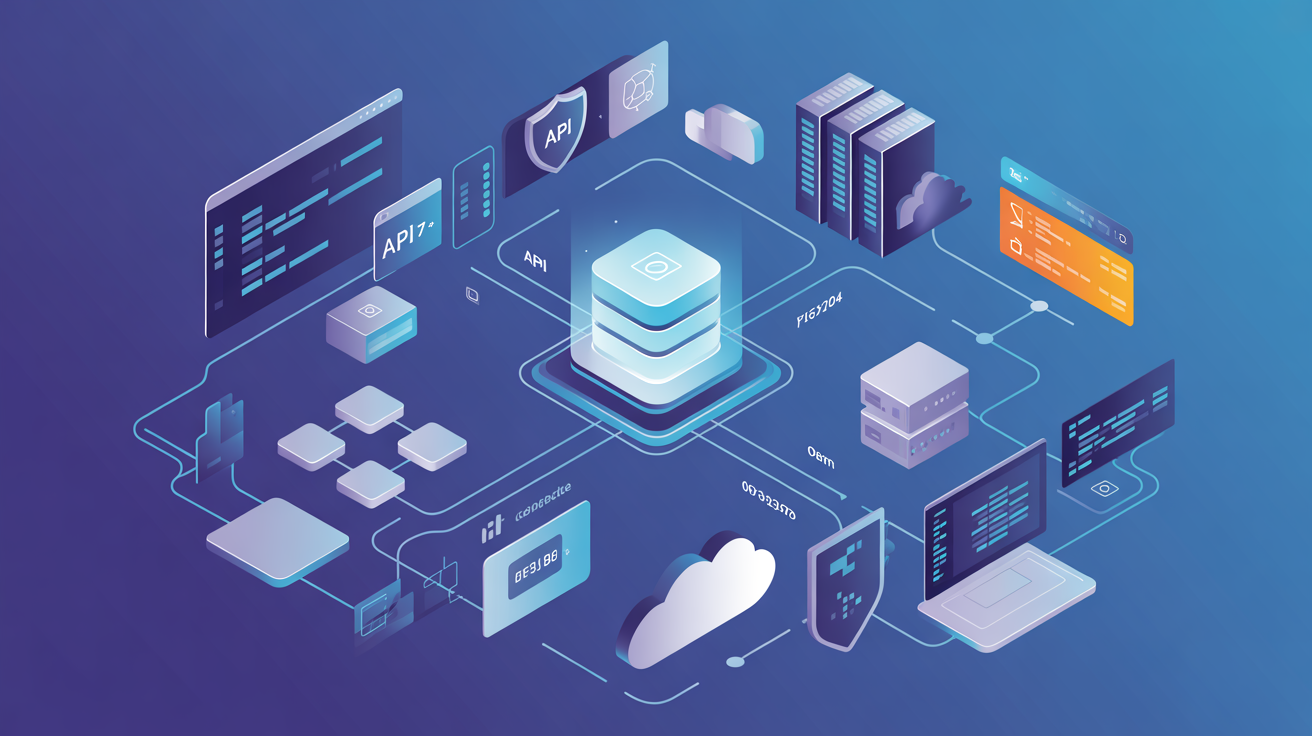Transforming Business Operations: The Complete Guide to AI Agent Workflow Automation
Published by ThingSmart IT Consultancy | Empowering UK SMEs with Intelligent Technology Solutions
The landscape of business automation has evolved dramatically. While traditional automation tools could handle simple, rule-based tasks, today’s AI agents represent a quantum leap forward—capable of making decisions, learning from patterns, and handling complex workflows that previously required human intervention.
For UK small and medium enterprises (SMEs), this technology shift presents an unprecedented opportunity to compete with larger organisations by leveraging intelligent automation to streamline operations, reduce costs, and improve service delivery.
Understanding AI Agents in Business Context
What Are AI Agents?
AI agents are sophisticated software entities that can perceive their environment, make decisions, and take actions to achieve specific goals. Unlike traditional automation scripts that follow predetermined rules, AI agents can adapt to new situations, learn from experience, and handle exceptions intelligently.
In business workflow automation, AI agents serve as digital workers that can:
- Process and analyse unstructured data
- Make contextual decisions based on multiple variables
- Communicate with humans and other systems
- Learn and improve their performance over time
- Handle exceptions and edge cases without breaking down
The Evolution from Traditional Automation
Traditional business process automation (BPA) tools excel at repetitive, rule-based tasks but struggle with variability and complexity. AI agents bridge this gap by introducing cognitive capabilities that enable them to handle:
- Dynamic decision-making: Evaluating multiple factors to choose the best course of action
- Natural language processing: Understanding and responding to human communication
- Pattern recognition: Identifying trends and anomalies in data
- Adaptive learning: Improving performance based on outcomes and feedback
Key Applications for UK SMEs
Customer Service and Support
AI agents are revolutionising customer service by providing 24/7 support that goes beyond simple chatbots. Advanced agents can:
Intelligent Query Resolution: Handle complex customer inquiries by accessing multiple systems, understanding context, and providing personalised solutions. For instance, an AI agent can automatically process a refund request by checking order history, verifying return policies, and initiating the refund process without human intervention.
Escalation Management: Recognise when issues require human attention and seamlessly transfer conversations with full context, ensuring customers don’t need to repeat information.
Proactive Support: Monitor system health and customer behaviour to identify potential issues before they become problems, reaching out proactively to offer assistance.
Intelligent Email Processing and Ticketing: AI agents can revolutionise how businesses handle customer communications by automatically processing incoming emails, creating appropriate tickets in your support system, and sending personalised acknowledgment responses. For example, when a customer emails about a technical issue, the AI agent can:
- Analyse the email content to determine the issue type and urgency level
- Automatically create a support ticket with proper categorisation and priority
- Send an immediate auto-reply with a ticket reference number and estimated response time
- Route the ticket to the appropriate team member based on expertise and workload
- Escalate urgent issues according to predefined business rules
- Follow up with customers if tickets remain unresolved beyond specified timeframes
Sales and Marketing Automation
AI agents can transform how SMEs approach sales and marketing:
Lead Qualification and Nurturing: Intelligent agents can analyse prospect behaviour, score leads based on multiple criteria, and execute personalised nurturing campaigns that adapt based on engagement levels.
Dynamic Pricing: Implement sophisticated pricing strategies that consider competitor analysis, demand patterns, inventory levels, and customer segments in real-time.
Content Personalisation: Create and deliver tailored marketing messages across multiple channels based on individual customer preferences and behaviour patterns.
Operations and Supply Chain
Operational efficiency gains from AI agent automation can be substantial:
Inventory Management: AI agents can predict demand, optimise stock levels, automatically generate purchase orders, and manage supplier relationships based on performance metrics and market conditions.
Quality Control: Implement intelligent quality assurance processes that can identify defects, anomalies, or compliance issues across various business processes.
Resource Allocation: Optimise workforce scheduling, equipment utilisation, and project resource allocation based on dynamic factors like demand forecasting and capacity constraints.
Email and Communication Workflow Automation
One of the most impactful areas for SMEs is automating email-based business processes:
Automated Ticket Creation: When customers send support requests via email, AI agents can instantly analyse the content, extract relevant information, and create properly categorised tickets in your system. This eliminates manual sorting and ensures no customer inquiry is overlooked.
Intelligent Auto-Responses: Rather than generic “we’ve received your email” messages, AI agents can send contextual responses that acknowledge the specific issue, provide relevant information, and set appropriate expectations for resolution timing.
Smart Routing: Based on email content analysis, AI agents can automatically assign tickets to the most appropriate team members, considering factors like expertise, current workload, and customer priority levels.
Follow-Up Automation: AI agents can monitor ticket status and automatically send updates to customers, request additional information when needed, or escalate unresolved issues to management.
Multi-Channel Integration: Connect email automation with other communication channels (phone, chat, social media) to provide consistent customer experiences across all touchpoints.
Financial Management
AI agents can streamline financial operations while improving accuracy:
Automated Reconciliation: Handle complex account reconciliation by matching transactions across multiple systems, identifying discrepancies, and flagging unusual patterns for review.
Expense Management: Automatically process expense claims, verify receipts against company policies, and detect potential fraud or policy violations.
Financial Reporting: Generate comprehensive financial reports that combine data from multiple sources, identify key trends, and provide actionable insights for decision-making.
Implementation Strategy for SMEs
Assessment and Planning Phase
Current Process Audit: Begin by mapping existing workflows to identify bottlenecks, repetitive tasks, and areas where human judgment is consistently applied to routine decisions.
ROI Identification: Focus on processes that consume significant time, have high error rates, or require 24/7 availability. Calculate potential savings in terms of time, labour costs, and improved accuracy.
Technology Readiness: Evaluate your current IT infrastructure’s capability to support AI agent deployment, including data accessibility, system integration capabilities, and security requirements.
Pilot Project Selection
Start with a controlled pilot project that demonstrates clear value while minimising risk:
Ideal Pilot Characteristics:
- Well-defined process boundaries
- Measurable outcomes
- Limited external dependencies
- High frequency of execution
- Clear success criteria
Common Pilot Projects:
- Automated invoice processing and approval workflows
- Email-to-ticket conversion with intelligent routing and auto-responses
- Customer inquiry processing and acknowledgment automation
- Inventory reorder automation
- Employee onboarding task management
- Appointment scheduling and confirmation workflows
Technology Stack Considerations
Platform Selection: Choose platforms that offer:
- Integration capabilities with existing systems
- Scalability to handle growing business needs
- User-friendly interfaces for non-technical staff
- Robust security and compliance features
- Cost-effective pricing models suitable for SMEs
Data Requirements: Ensure your organisation has:
- Clean, accessible data for training AI agents
- Proper data governance policies
- Compliance with UK data protection regulations (GDPR)
- Backup and recovery procedures
Change Management and Training
Staff Engagement: Address concerns about AI replacing jobs by positioning agents as tools that enhance human capabilities rather than replace them. Focus on how automation will eliminate mundane tasks and allow staff to focus on higher-value activities.
Training Programs: Develop comprehensive training that covers:
- How to interact with AI agents effectively
- Monitoring and supervising agent performance
- Handling exceptions and escalations
- Continuous improvement processes
Performance Monitoring: Establish KPIs to measure agent performance, including:
- Task completion rates and accuracy
- Processing time improvements
- Error reduction metrics
- User satisfaction scores
- Cost savings achieved
Benefits and Expected Outcomes
Operational Efficiency Gains
SMEs implementing AI agent workflow automation typically experience:
Time Savings: Routine tasks that previously took hours can be completed in minutes, freeing up staff for strategic activities.
Error Reduction: AI agents provide consistent performance without fatigue, significantly reducing human error rates in repetitive processes.
24/7 Operations: Critical processes can continue outside business hours, improving service levels and customer satisfaction.
Scalability: Handle increasing workloads without proportional increases in staffing costs.
Competitive Advantages
Enhanced Customer Experience: Provide faster, more consistent service that rivals larger competitors with extensive resources.
Data-Driven Decision Making: AI agents generate valuable insights from process execution data, enabling better business decisions.
Agility: Respond quickly to market changes by rapidly adjusting automated processes rather than retraining staff or restructuring departments.
Cost Optimisation: Reduce operational costs while improving service quality, allowing competitive pricing strategies.
Common Challenges and Solutions
Technical Challenges
System Integration Complexity: Legacy systems may lack modern APIs for easy integration. Solution: Implement middleware solutions or consider gradual system modernisation as part of your digital transformation strategy.
Data Quality Issues: Poor data quality can severely impact AI agent performance. Solution: Invest in data cleansing and establish data governance processes before implementation.
Security Concerns: AI agents require access to sensitive business data. Solution: Implement robust security frameworks including encryption, access controls, and audit trails.
Organisational Challenges
Resistance to Change: Staff may fear job displacement or struggle with new technologies. Solution: Involve employees in the design process, provide comprehensive training, and clearly communicate the benefits.
Unrealistic Expectations: Expecting immediate perfection from AI agents can lead to disappointment. Solution: Set realistic timelines and expectations, emphasising the iterative nature of AI improvement.
Maintenance Requirements: AI agents require ongoing monitoring and refinement. Solution: Establish clear governance processes and assign responsible team members for agent management.
Future Trends and Considerations
Emerging Technologies
Multi-Modal AI Agents: Future agents will process text, voice, images, and video simultaneously, enabling more sophisticated automation scenarios.
Federated Learning: AI agents will learn from collective experiences across multiple organisations while maintaining data privacy.
Edge Computing Integration: Local processing capabilities will enable faster response times and reduced dependence on cloud connectivity.
Regulatory Landscape
AI Governance: The UK government is developing comprehensive AI regulation frameworks. SMEs should stay informed about compliance requirements and build ethical AI practices into their implementations.
Data Protection: Enhanced focus on data privacy will require more sophisticated consent management and data handling procedures within AI workflows.
Industry-Specific Evolution
Different sectors will see varied AI agent adoption patterns:
Professional Services: Document analysis, contract review, and compliance monitoring Manufacturing: Predictive maintenance, quality control, and supply chain optimisation Retail: Personalised customer experiences, inventory management, and demand forecasting Healthcare: Patient data management, appointment scheduling, and treatment protocol automation
Getting Started: Your Next Steps
Immediate Actions
- Conduct a Workflow Audit: Identify your most time-consuming, repetitive processes
- Assess Data Readiness: Evaluate the quality and accessibility of your business data
- Research Solution Providers: Investigate platforms and vendors suitable for your industry and size
- Calculate Potential ROI: Quantify the expected benefits of automating specific processes
Medium-Term Planning
- Develop an Implementation Roadmap: Create a phased approach to AI agent deployment
- Build Internal Capabilities: Train staff or hire expertise to manage AI implementations
- Establish Governance Framework: Create policies for AI agent management and oversight
- Pilot Project Execution: Launch your first AI agent workflow automation project
Long-Term Strategy
- Scaling Successful Implementations: Expand proven automation solutions across your organisation
- Continuous Innovation: Stay current with emerging AI technologies and applications
- Competitive Differentiation: Leverage AI capabilities to create unique value propositions
- Industry Leadership: Share your experiences and establish thought leadership in your sector
Conclusion
AI agent workflow automation represents a transformative opportunity for UK SMEs to enhance their operational efficiency, improve customer experiences, and compete more effectively in an increasingly digital marketplace. The technology has matured to the point where implementation is both feasible and cost-effective for smaller organisations.
Success requires a thoughtful approach that combines technical implementation with change management, realistic expectations with ambitious goals, and immediate benefits with long-term strategic vision. By starting with carefully selected pilot projects and gradually expanding automation capabilities, SMEs can build competitive advantages that would have been impossible just a few years ago.
The question is not whether AI agents will become commonplace in business operations, but rather how quickly organisations will adapt to leverage these capabilities. Those who act now will establish significant advantages over competitors who delay adoption.
At ThingSmart, we specialise in helping UK SMEs navigate the complexities of AI implementation and workflow automation. Our experienced team, led by industry veteran Vedat with over two decades of IT expertise, provides end-to-end support from strategy development through implementation and ongoing management. Contact us to discuss how AI agent workflow automation can transform your business operations.





Leave a Reply